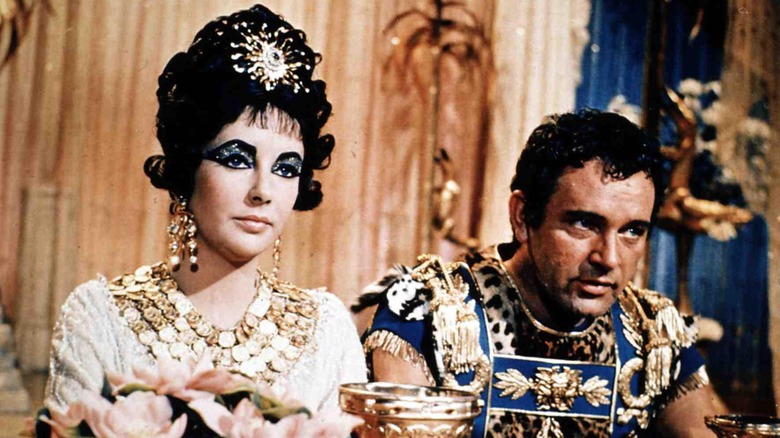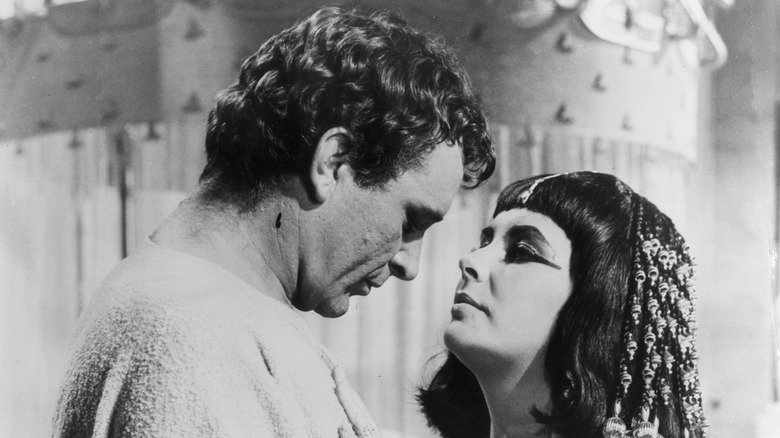How Historically Accurate Is 1963's Cleopatra?
Cleopatra is perhaps one of history's most famous (or infamous) female rulers. On the one hand, she used her intelligence and charm (contrary to popular belief, her appearance evidently was not that remarkable) to win the affections of both Julius Caesar and Mark Antony, gaining their political and economic favor. On the other hand, her support for Antony's bid for power failed at Actium, and the pair were left to commit suicide lest the victorious Octavian capture them.
With her death came the end of not only the Ptolemaic dynasty, but of independent pharaohs as the title was appropriated by subsequent Roman emperors (via Medium). Among other mediums such as Shakespeare's work, her story became popularized centuries later in the 1963 film "Cleopatra," which remains one of the most expensive films ever made (via Variety). While this project did much to enlighten contemporary audiences on the ancient monarch, attitudes toward film-making led to a product that is in many ways as historically dated as it is artistically timeless.
1963's Cleopatra is very accurate on paper, but not so much visually
Cleopatra was unique in comparison to past Ptolemaic rulers in that she was the first to be fluent in Egyptian. Additionally, she and the Ptolemys were not only Greeks — their founder Ptolemy was one of Alexander the Great's generals — but were incestuously produced Greeks, per Medical Bag. This helped maintain continuity with the preexisting Pharaonic power systems, while the family otherwise maintained an existence insulated from their subjects. Therefore, it is unlikely that the real Cleopatra would have been as fair-skinned or as free of genetic disease as Elizabeth Taylor.
Similarly, it is unlikely that Ancient Egypt would have been as relatively devoid of African, Arabic, and Levantine people as the film might imply. In regard to Cleopatra's clothes and cosmetics in the film, they are depicted with then-modern tailoring and application in spite of historical inspiration (via Egyptian Streets).
Inaccuracies aside, the film is a stunning piece of art and, script-wise, is fairly accurate in its presentation of historical events. It is simply worth baring in mind that the aesthetic liberties made by the directors give the film a far more romanticized atmosphere than it probably should have.

